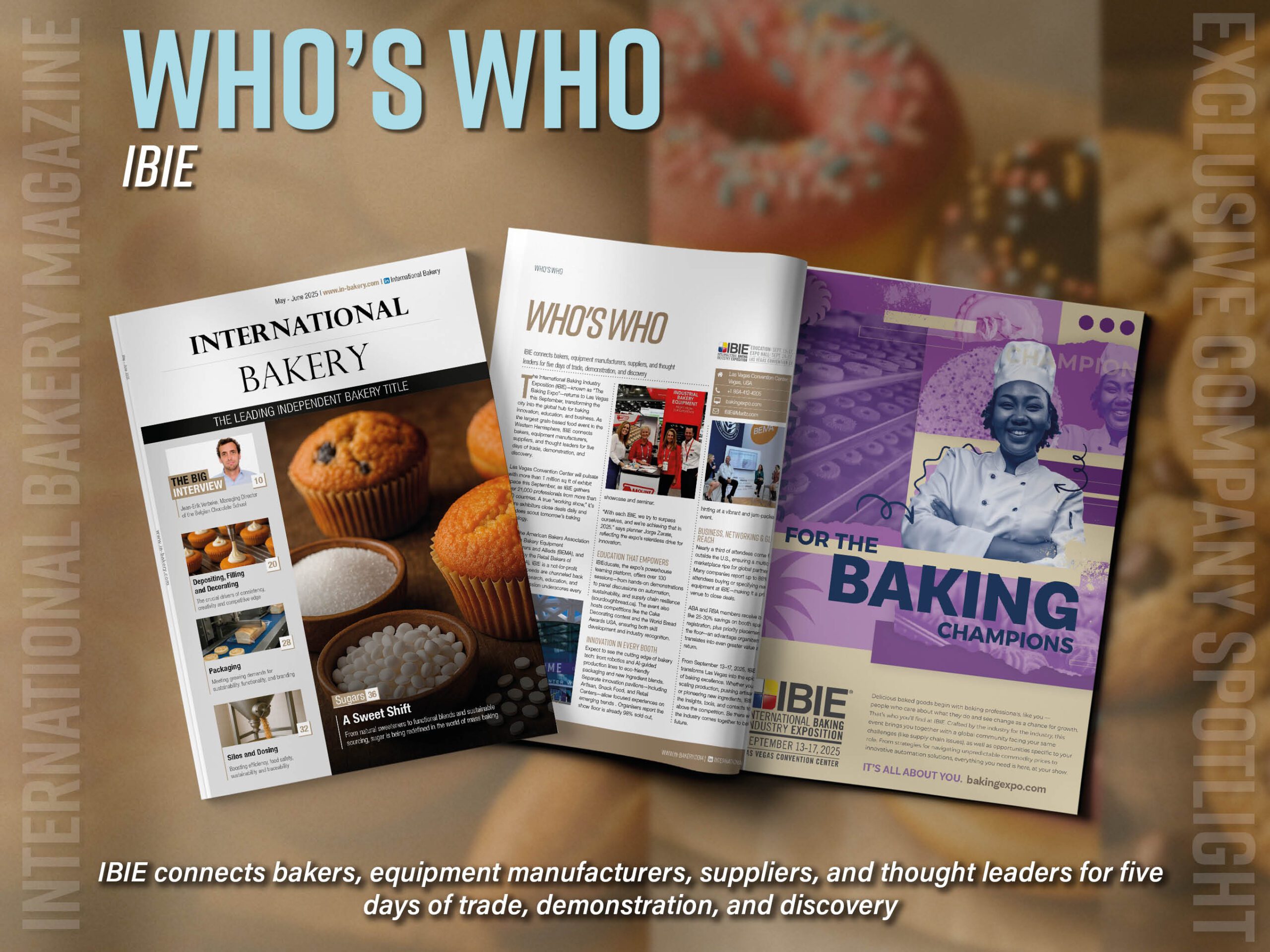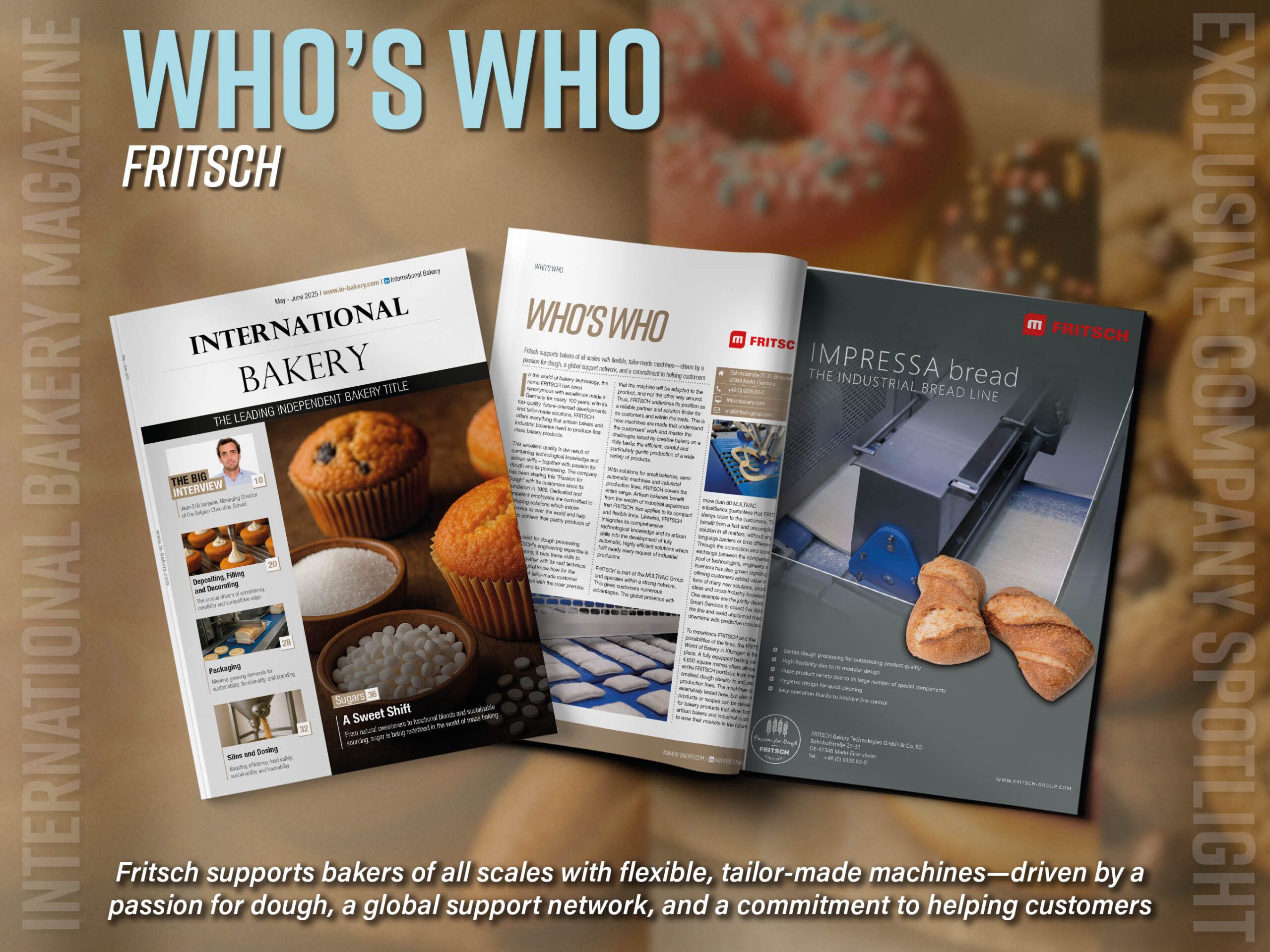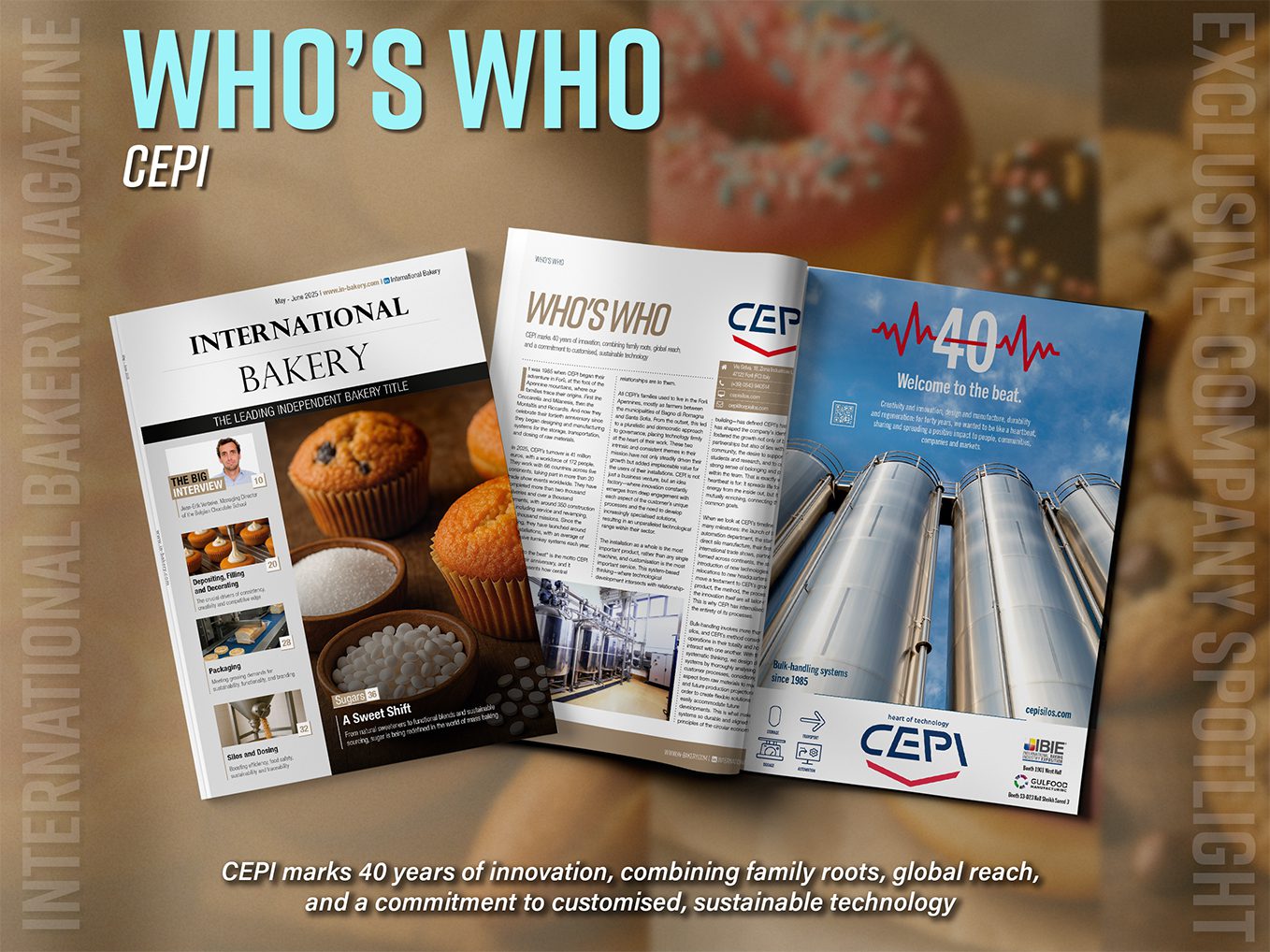International Bakery’s Editor, Kiran Grewal, speaks to Natalie Sheil, Bakery Category Manager at Synergy Flavours, discussing all the developments of vegan bakery and current trends.
Natalie Sheil’s role as Bakery Category Manager involves being on the lookout for the latest trends in the bakery market, but also managing any key projects within the category. Some of the key areas Synergy Flavours are working on now are things vegan, but also calorie reduction, and they are looking at current trends and anything that can add a bit of interest to their portfolio with relevance to the bakery category.

“In terms of a typical day, I would say, no two days are the same, at Synergy to be honest,” Sheil laughs.
“One day I might be working on an insight presentation – we do those quite a lot for our customers to really help them to understand what is up and coming in the bakery market and how they can use that in their product development, and other days I might be working more around building content for campaigns, which involves coming up with a product list, or just generally having more materials available, on the marketing side.
“Understanding the aroma of butter and how that contributes to indulgence, has helped us to create some natural flavours”
“I also work on the social media, so it’s quite varied. If I was in the office at the moment, we have quite a lot of product tastings, so we would be getting products in from the market to understand what is out there basically. That’s quite a key part of my role as well,” she explains.
Veganism on the rise
When asked if being vegan or vegetarian has shifted to become mainstream, Sheil responds: “There has definitely been a shift in the last two years, if we go back around five years you would only really see vegan products in health food stores, and now they are all over the supermarkets. That’s being driven by quite a lot of different factors, some of those factors are concerns about the environment, some consumers have a perception that vegan/vegetarian products are healthier, and sometimes it’s just consumers being quite curious.
“We’ve actually done some primary research ourselves, at Synergy, to understand how the market is growing and why it’s growing, and we found that most consumers were buying plant based products, but they weren’t necessarily vegan or vegetarian, so it’s being driven a lot by flexitarians, consumers who are a bit more flexible, maybe want to try something a bit different, rather than vegans and vegetarians, who are a little bit more restrictive.
The phrase plant-based sums it up quite nicely. “I think people are moving away from the word vegan, because it almost sounds a bit too restrictive, and plant based is almost a bit softer and easier for consumers to understand,” she says.
Vegan products are deemed challenging generally, but bakery products are particularly so, due to the traditional ingredients associated with baked goods such as eggs, milk, butter and cream. These ingredients make up a large percentage of the recipe and it is often quite a complex process, so developing it for a vegan or plant-based consumer can be difficult.
Sheil adds: “If you look at the flavour variety that’s on the shelf at the moment, within bakery, I would say bakery is almost one step behind a lot of the other categories.”
She continues: “When you use plant-based milk alternatives, for example, they don’t taste like dairy milk at all, and they can actually give a bit of flavour direction, so, if you use oat milk, it will have a cereal note in products, and that’s not necessarily a desirable thing for consumers who still want them to taste as good as the traditional bakery products.
“Eggs are important for structure and texture, and again, once you take those out of the recipe it becomes quite a challenge for texture, which contributes to taste, which alters the taste profile. We’ve been working from the beginning, starting to develop different vegan bakery recipes, so looking at different resources to find out the kind of ingredients that are being used on the market, and then taking that information to develop our own recipes that are reflective of what we are seeing.
“Once we have those recipes developed, we take those through sensory, we taste them, and score them, to really understand the particular challenges around taste. This can be whether it has contributing cereal notes, or if it’s lacking indulgence, and we use this data to tackle our flavour solutions.”
Flavour pairings and how it develops bakery
Synergy have been doing extensive work on flavour pairing outside of vegan bakery too, looking at plant-based proteins, using analysis to understand some more undesirable notes within pea protein and working on the science of flavour pairing.
Sheil explains: “The idea of flavour pairing is that you take two ingredients that share similar aroma compounds with the theory being that if they have those similar aroma compounds, they will work really well together. So, what we found with the work on pea protein is that some of the notes that you find in pea protein, are like some roasted notes you would find those in brown profiles, like chocolate and caramel, and that is some of the flavour profiles that you would tend to see in vegan products.
“That’s talking about pea protein specifically,” she notes. “But sometimes we are using pea protein as an egg replacer, for example, so, I think it’s interesting there. Indulgent flavours seem to work well with vegan products, and we tend to see less of the lighter fruity profiles, so I think that work that we’ve been doing on the protein side, does back it up on the side of bakery as well.”
Indulgent flavours in baked goods are often contributed by dairy-based ingredients, as they help with a creamy mouth feel. Recreating those dairy notes would normally be quite challenging, but Synergy’s dairy heritage, with their parent company Carbery, means they have experience in developing aromatic dairy flavours, and they have used that and applied it to the development of natural flavours.
“Understanding the aroma of butter and how that contributes to indulgence, has helped us to create some natural flavours, that can replicate that same taste in vegan products, it can be done if you understand the products that you are working with and how they contribute to indulgence,” Sheil says.
Functional foods
Synergy is currently discussing functionality of ingredients in bakery products, as consumers have shown an appetite for a fusion of indulgent foods that also offer additional health benefits.
Sheil gives more detail: “We were talking about the fact that in a vegan cake for example, you are taking out the egg, so you are lacking quite a lot of protein, so we have been doing some work looking at adding pea protein as a replacement for egg, so it helps with the structure and adds that protein as well. As we have seen in more traditional bakery categories, we will start to see functionality coming through. We know fibre and gut health are really a key trend now as well, especially with the pandemic, and the links with immunity, so fibre and protein are things that we are seeing in traditional products, and it will be something to watch for the vegan market as well.”
Functional ingredients in baked goods can alter the overall taste, which means it might be harder to completely replicate the traditional taste expected of certain cakes. Synergy’s research shows that younger consumers are happy to try new flavours.
“Eggs are important for structure and texture, and again, once you take those out of the recipe it becomes quite a challenge for texture”
“There will be a lot of innovation in terms of new ingredients coming through and less of trying to make a vegan cake taste like one that has got butter in, and maybe we will move away from that. There will still be that appetite for both, so maybe just more variety in the market.”
Further trends in bakery
Synergy have been working on their trends for next year and one of the areas that they been looking at is the idea of travelling through food. “People haven’t been able to travel, so they want to have those experiences from home, and anything again that can provide customisation, something a little bit different give people something to talk about, is going to be an interesting area and a winning space for consumers as well.
“At the moment people are quite excited about vegan products still, it’s still got that buzz and excitement around it, and people are still discovering it; but I think there will come a point where consumers will start to pay more attention to ingredients labels, and nutritional elements, particularly in the bakery category.
“If we start to look at some of these ingredients in comparison to their traditional products where we know sugar and fat are a concern, it might be that in the future consumers will start to switch on to that in vegan products and start to become more familiar with what they’re looking for. That might then move to more focus on health-conscious vegan products, with the use of more natural ingredients, natural fruits, adding fibre into products and the highlighting of clean label in the near future.”
Image credit: Synergy Flavours
To stay up to date on the latest, trends, innovations, people news and company updates within the global bakery market please register to receive our newsletter here.
Media contact
Kiran Grewal
Editor, International Bakery
Tel: +44 (0) 1622 823 922
Email: editor@in-bakery.com






